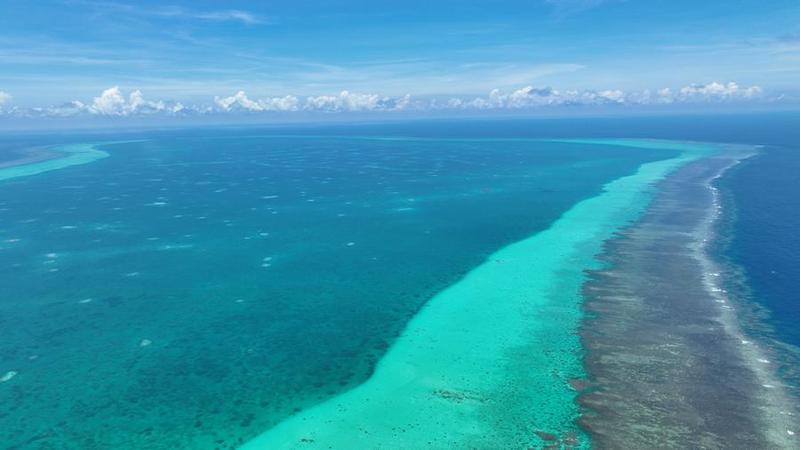China gets flanked for mishandling North Korean refugees
China’s role in handling refugee situations, particularly concerning North Korean refugees, has come under severe criticism from the global community. In fact, China has exhibited a blatant disregard for human dignity, opting to ruthlessly repatriate North Korean refugees to face imprisonment, torture, and even execution.
The story of Kim Cheol Ok which recently came to light, has exposed China’s stand on human rights. Her story, emblematic of countless others, underscores China’s contentious role in handling refugee situations with flagrant disregard for human dignity, choosing instead to ruthlessly repatriate North Korean escapees to face imprisonment, torture, and even execution in their repressive homeland.
After fleeing the ravages of famine in North Korea, Ok sought refuge in China, hoping for a better life. However, her dreams were shattered when she was sold into marriage and spent decades in legal limbo. Despite her resilience, Kim’s life took a turn for the worse amid the COVID-19 pandemic, prompting her to embark on a perilous journey to Vietnam in search of freedom. Yet, her aspirations were brutally crushed when Chinese authorities intercepted her and forcibly repatriated her to North Korea. The actions of China regarding North Korean refugees highlight a stark departure from its obligations under international law and treaties.
China has come under severe pressure for repatriating hundreds of North Korean defectors since the reopening of the North Korean border following the Covid-19 pandemic, with a United Nations agency recently calling for “humanitarian space” for these refugees. According to an article in Strait Times, China was likely to continue its decades-long practice of sending back defectors instead of recognising them as refugees and allowing them to stay in the country. Any change in stance might spark a mass exodus and possible collapse of the Kim regime in North Korea, they said.
The United Nations Refugee Convention and Convention Against Torture prohibits the forced return of individuals to situations where they face persecution or torture. Despite being a signatory to these conventions, China has openly flouted these principles, prioritizing political alliances over the protection of vulnerable refugees.
In October 2023, HRW condemned China’s forcible return of more than 500 North Korean escapees, highlighting the grave risks they faced upon repatriation, including imprisonment, torture, and sexual violence. Despite international outcry, China continued its practice of deporting North Korean refugees, turning a blind eye to their plight.
China’s callous actions stand in stark contrast to its close relationship with North Korean leader Kim Jong Un. Despite their diplomatic ties, China’s stance towards North Korean refugees living in border areas reflects its anti-people policies, as it prioritizes political expediency over humanitarian considerations. According to available data, about 10,000 North Koreans are said to be hiding in China. It is believed that some 2,000 of them were detained in China during the Covid-19 pandemic between 2020 and 2023 when the border with North Korea was closed.
The North reopened its borders in late September, 2023..China deported the first batch of 600 North Koreans in October, after the Asian Games ended in Hangzhou, South Korea’s Unification Ministry confirmed.
Kim Tae-hoon, honorary chairman of Lawyers for Human Rights and Unification of Korea, reportedly said,“China knows well that when they repatriate the defectors, North Korea will torture them or even execute them. “Yes, China knows these facts, but yet they repatriate. They are just like the accomplices of the North Korean regime that commits crimes against humanity.”
In a recent report, the UN High Commissioner for Refugees urged China to ‘acknowledge the severity of treatment’ of those returnees deemed to have left North Korea illegally and to ensure ‘viable and effective humanitarian space’ for these escapees.
The plight of North Korean refugees caught in the crossfire of geopolitics underscores the urgent need for international intervention. The problem of North Korean refugees has been there for a long time. In 2012, amid reports of China’s plans to forcibly return 30 North Korean escapees, the South Korean government and several Western and Asian nations had protested vehemently. The UNHCR also urged China to refrain from repatriating the refugees, recognizing the severe risks they faced upon return.
Despite these efforts, China persisted in its policy of forced repatriation, disregarding its obligations under international law. The Chinese government routinely labels undocumented North Koreans as illegal economic migrants and denies them the opportunity to seek asylum or resettlement. By flouting international conventions such as the Refugee Convention and Convention Against Torture, China not only violates its legal commitments but also perpetuates the cycle of suffering for North Korean refugees.












